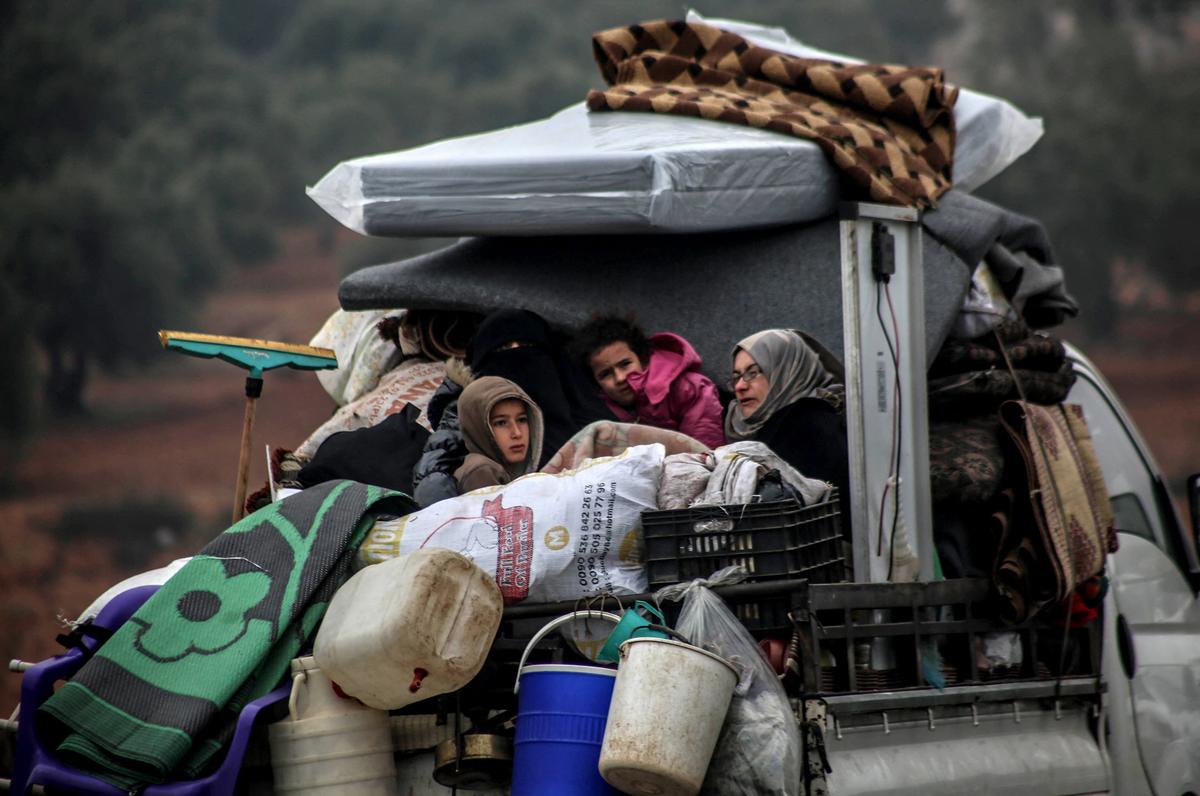After almost two decades, displaced sisters finally get a place of their own
After almost two decades, displaced sisters finally get a place of their own

JABLANICA, Bosnia and Herzegovina, October 18 (UNHCR) - After living for the past nine years in a cramped and dilapidated collective centre in the southern Bosnian town of Jablanica, Devla and Mevzeta finally have a place of their own.
The elderly sisters fled their village near Gacko, in eastern Bosnia and Herzegovina, some 18 years ago to escape an ethnic conflict that left tens of thousands of people dead and hundreds of thousands displaced from 1992-1995.
They have since spent almost all of their time in the Gornja Kolonija collective centre in Jablanica, which at one time was home to more than 1,500 internally displaced people. The dire residence was finally closed late last month and the last nine people living there, including 65-year-old Devla and Mevzeta, 70, were moved to a brand new four-storey block elsewhere in the riverside town.
The new building, which has eight flats, was built on land provided by the Jablanica municipal authorities. UNHCR provided the funding for its construction as part of an integration programme for the most vulnerable people who cannot return to their homes. The collective centre lacked adequate fresh water and sanitation facilities.
Devla and her sister Mevzeta were clearly delighted with their new rent-free home, which boasts a regular electricity supply, hot and cold running water, a modern kitchen, living room, bedroom and bathroom. But what most impressed them was the privacy and security they now have.
"For nine years we lived together in one room. When we wanted to use the bathroom or cook anything, we had to wait for others to finish using the shared facilities. We never had any time to ourselves, any space to feel comfortable in," recalled Devla.
Over the years, UNHCR has been working with the Jablanica authorities to find solutions, including social housing, for those still stuck in the collective centre, which was set up as temporary emergency housing for the forcibly displaced.
Many of the last residents of Gornja Kolonija came from eastern Herzegovina, an area of the country which saw severe human rights abuses and war crimes. All are vulnerable and old and some cannot earn a living. A few receive small pensions and the municipality is subsidizing their utility bills.
Naveed Hussain, UNHCR's representative in Bosnia and Herzegovina, said at the opening of the new building that the project in Jablanica was "an excellent example to other municipalities of what can be achieved and what practical steps need to be taken to provide displaced people with the assistance they urgently require."
Some 113,000 people remain displaced within Bosnia, including 7,000 who live in collective centres, often in appalling conditions. UNHCR continues to advocate with the authorities at all levels to find solutions for the remaining displaced people.
By Darragh Farrell in Jablanica, Bosnia and Herzegovina












